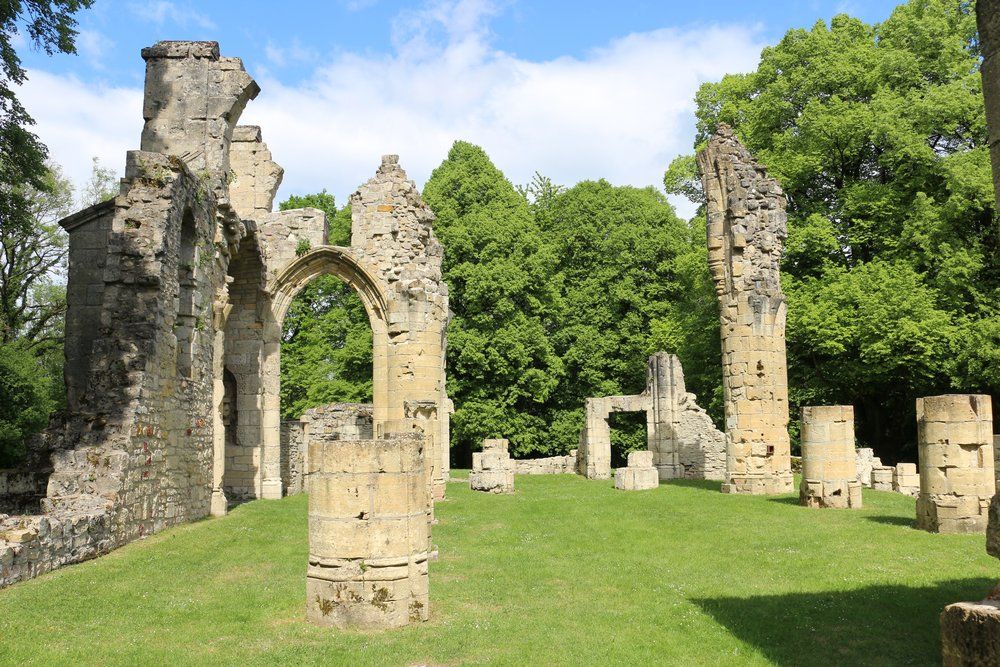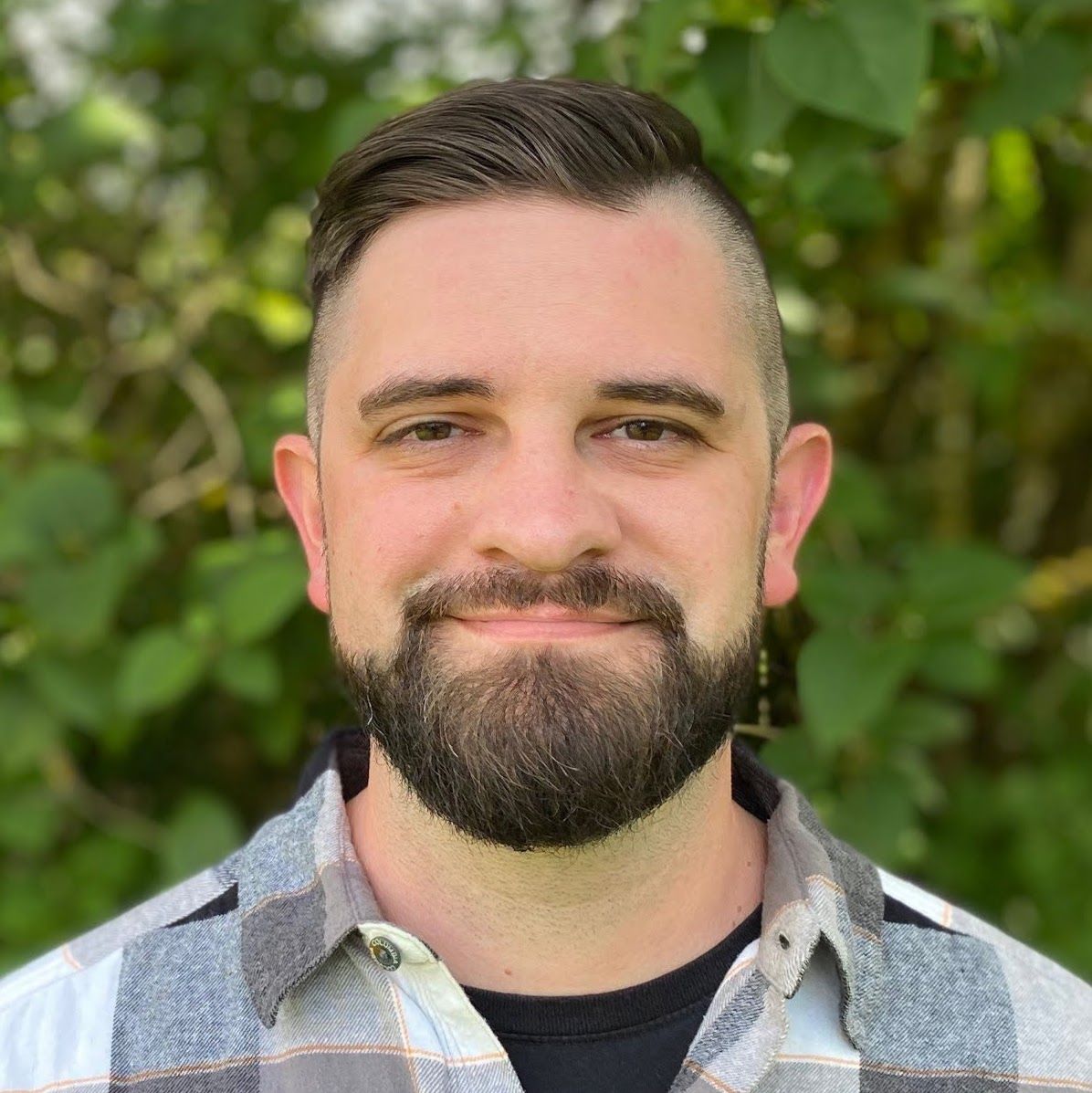Embracing Personal Myth
Sep 25
/
Michael Simmons

Life brings us to thresholds where all we've known and believed no longer supports the personal transformation our soul demands. These thresholds come about through death - the death of a partner, child, or close friend. A sudden dramatic transition like loss of employment, divorce, or some blow to status or communal perception can bring us crashing into this transition and liminal spaces. Such thresholds are accompanied by life script changes where the previous narrative is no longer hospitable to our lived experience. Here, our soul requires water from a deep well, and our churches and the common Christian narrative often have little to offer.
We Need Myth
Moments like these are why we need myth. Myths are the stories, images, religious texts, and spiritual experiences that serve as guides through the various thresholds in life. Of course, "myth" has become synonymous with "untruth." However, mythologist Joseph Campbell poetically offers that "myths are a series of lies meant to reveal the truth." Myths use metaphors, parables, and symbols to reflect back our inward, often unconscious and unacknowledged, experience. Campbell believed myths serve four primary functions in our lives:
Four Functions of Myth
- Myths awaken us to ourselves and the Divine/transcendent. They chart us within the universe and answer the question, "Who?" "Who is the divine?" "Who am I?" And, what is my basic substance?
- Myths help us interpret our world. Myths are the meaning makers behind all human experiences and answer the question "What?" "What is the meaning of life?" When we know "who" we are (first function), then we can understand the "what" of life (second function).
- Myths validate and support the moral order stated in laws (religious and civic), folkways, taboos, mores, "sins," and any collective knowledge that may be labeled "common sense." Myths answer the question "How?" - specifically, "How should we live?"
- Myths carry us through life's various stages and crises by getting us in touch with the Source of regenerative power. The fourth function addresses the question, "How can I live again?"
The Common Christian Myth
Mythic functions #1-3 help us build a strong personal and communal identity. Function #4 dismantles and deconstructs that identity to serve something greater, more whole, and inclusive. Each function is essential for our life to stabilize, flourish, and reproduce. But Campbell's fourth function seems to be missing or even defended again in many of our churches and Christian communities.
If you're reading this, you likely either no longer identify with organized religion, still identify with it but don't participate, or participate but question it significantly. The Common Christian Myth tells us who God is and who we are (function #1). It offers an initial way to interpret and make meaning of our world (function #2), and perhaps its most well-known contribution is its morality and binary sense of good and evil/right and wrong (function #3). However, the Common Christian Myth fails to move us through life's various stages and crises (Function #4).
Initiation into the Spirit of the Depths
"Initiations by the [Spirit of the Depths] introduce and induce people into a new kind of consciousness that answers questions related to a sense of identity and consequently lead to meaningful action [...] [they] tell of why one was born and of a destiny for one's unique life." - Murray Stein, Minding the Self
Likely, your early religious communities provided a) an awakening to yourself/to God, they provided b) meaning for your life and the world, and they provided c) structure and order, and kept you safe, or at least attempted to, sometimes in harmful ways. We needed these things, but eventually, our lives demanded more from us. This demand, this call to initiation, is why you had to leave or eventually why you won't be able to stay. Like a plant in need of repotting, our souls need depth, nourishment, and spaciousness to sustain the unfolding abundance of life.
Myths don't die; they simply expand, often in unrecognizable ways. If you left the church, no longer identify as a Christian, read your Bible, pray, etc., it's likely because those activities and practices could no longer hold the complexities of your experience. When our myth expands, it can feel as though it evaporates. The evaporation is more like a metabolizing process (what Jung called the Transcendent Function) where we integrate the contents of our previous myth and lay down the containers that held it. We no longer need to awaken to the Divine because the Divine is awake within. Meaning is no longer provided to us because meaning springs up from within us organically. External moral codes are relativized because we are more concerned with wholeness than purity and perfection.
Application: Reflect on Your Personal Myth
- What was your earliest/most awakening spiritual experience? When did you first encounter the divine?
- What sort of meaning arose from this experience? How did you begin interpreting the world?
- What structure, "insider/outsider" divisions, and moral ordering solidified? In short, what actions, behaviors, and groups were "good" and which were "bad"?
- Finally, when did all this fall apart? When did your identity, meaning, and moral order come into question?
- In what ways has a renewed/expanded myth emerged, if at all?
Want to hear more from Michael? Join him in his upcoming course, Companioning Our Shadow: Befriending Emotions, Healing Relationships, on Thursdays from October 5-November 2 from 9-11am PT. Do you struggle to engage your anger or maintain boundaries? Do you find yourself stuck in cycles of anxiety, passive aggression, or numbing behaviors? Are there traumas, hidden messages, or significant people from your past that hinder you from engaging in relationships and present opportunities? This course offers tools and language for exploring and integrating your “shadow,” the parts of our humanity we hide, repress, and deny. We'll explore concepts such as core emotions, counter-emotions, projections etc. for ongoing inner work and relational wholeness. Click the link to learn more!
Empty space, drag to resize

Michael Simmons
Michael Simmons is a spiritual director and retreat facilitator, and serves on the leadership team with the Companioning Center and on the board of Deep Water, a local community that provides tools, processes, and space for women and men to heal. Michael is also an ordained elder in the Free Methodist Church and a doctoral student at Portland Seminary where he is also the full-time admissions counselor. Michael is gifted at helping people enter liminal space in order to explore and integrate their inner-landscape. Blending Christian spirituality and Jungian psychology, Michael loves equipping others with tools and language to heal and help others do the same.
You can find out more at Innerworkcommunity.org and email him at innerworkcommunity@gmail.com. Be sure to check out Michael and Liz's (spouse) podcast, The Profaned Ordained, on Spotify and Apple Music.
You can find out more at Innerworkcommunity.org and email him at innerworkcommunity@gmail.com. Be sure to check out Michael and Liz's (spouse) podcast, The Profaned Ordained, on Spotify and Apple Music.

